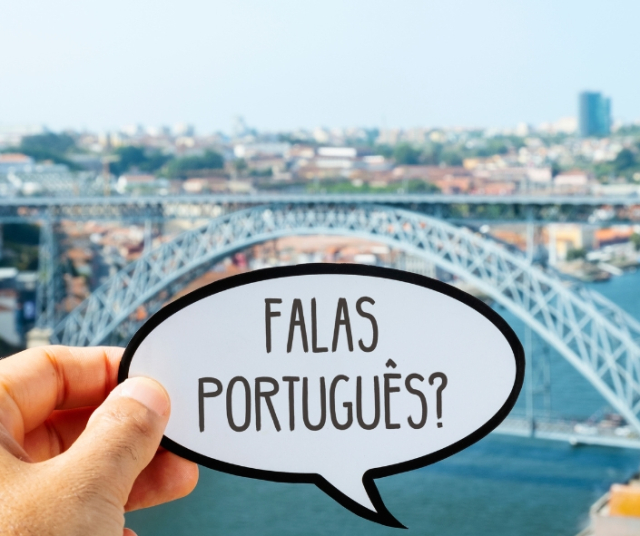On May 5 every year, the world comes together to celebrate World Portuguese Language Day. This date commemorates not only the linguistic richness of Portuguese, but also the cultural diversity that this language represents. Portuguese is spoken by more than 260 million people around the world, being the official language of eight countries and the mother tongue of communities spread across all continents.
History of World Portuguese Language Day
World Portuguese Language Day was established by the Community of Portuguese Language Countries (CPLP) in 2009. The CPLP is an international organization that seeks to strengthen political, economic and cultural ties between countries that share Portuguese as an official language. The date of May 5 was chosen in honor of the Portuguese poet, writer and diplomat, Luís de Camões, who died on that date in 1580.
Luís de Camões is considered one of the most important figures in Portuguese literature. His masterpiece, "Os Lusíadas", is an epic poem that narrates the Portuguese discoveries and has been fundamental for the consolidation of Portuguese cultural identity. World Portuguese Language Day not only pays tribute to Camões, but also highlights the influence of the language on the literature, music, art and history of Portuguese-speaking countries.
The Importance of Portuguese in the World
Portuguese is a language with a significant global presence. In addition to being the official language of Portugal and Brazil, Portuguese is spoken in African countries such as Mozambique, Angola, Cape Verde, Guinea-Bissau, Sao Tome and Principe, and East Timor in Asia. The geographical and cultural diversity of Portuguese-speaking countries contributes to the richness and variety of the language.
In Brazil, Portuguese is the main language and is spoken throughout the country. Brazil is the largest nation in South America and is home to a unique mix of indigenous, African and European cultures. The Portuguese language in Brazil has evolved and adopted various linguistic influences, creating a distinctive version of the language that reflects the country's multicultural identity.
In Africa, Portuguese is one of the official languages in several countries, a result of Portuguese colonial history in the region. Although these nations have developed unique variants of Portuguese, the language remains an important link between them and with the global Lusophone community.
Cultural Diversity in the Lusophone Community
The Lusophone community, made up of Portuguese-speaking countries, is a diverse network of nations united by language, but also by history, culture and economic ties. The celebration of World Portuguese Language Day highlights the importance of preserving and promoting this cultural diversity.
Music plays a prominent role in the cultural expression of Portuguese-speaking countries. From Brazilian samba and bossa nova to Cape Verdean morna, the music reflects the richness of local traditions and the creativity of Lusophone artists. The celebration of the Portuguese language is also a recognition of the artistic and musical contribution of the Lusophone community to the global cultural landscape.
Portuguese in Literature and Education
Portuguese-language literature has produced some of the greatest writers and poets in history. In addition to Luís de Camões, authors such as Fernando Pessoa, José Saramago and Clarice Lispector have left an indelible mark on world literature. The celebration of World Portuguese Language Day is an opportunity to explore these works and appreciate the diversity of voices that Portuguese has given to the literary world.
The importance of Portuguese in education is also a crucial aspect of the celebration. The Portuguese language is a bridge between cultures, allowing Portuguese speakers to access a rich literary and cultural tradition. Furthermore, the teaching of Portuguese as a foreign language is increasing, which contributes to the promotion of the language and intercultural understanding.
Challenges and Opportunities for the Portuguese Language
Although Portuguese is a vibrant and rich language, it also faces challenges in the contemporary world. The preservation of indigenous languages and dialects in Brazil, the fight against the influence of other languages on the evolution of Portuguese and the promotion of literacy are crucial aspects to ensure the continued vitality of the language.
However, these challenges also present opportunities for innovation and revitalization of Portuguese. Technology and digital media offer new ways to teach and learn the language, connecting people from all over the world through Portuguese. Globalization has opened windows for the dissemination of Lusophone culture, allowing more people to discover the beauty and diversity of this language.
Celebrations on World Portuguese Language Day
World Portuguese Language Day celebrations take place all over the world. Cultural events, music festivals, literary exhibitions and educational activities mark this special day. The Lusophone community comes together to celebrate their shared identity and to promote the Portuguese language and culture around the world.
In schools, special activities are carried out to highlight the importance of Portuguese as a language of expression and communication. Students have the opportunity to explore the cultural richness of Lusophone countries and learn about the history and evolution of the Portuguese language.
As the Lusophone community looks to the future, facing challenges and seizing opportunities, World Portuguese Language Day becomes a platform for the promotion and preservation of this unique language. Through celebrating its rich history, its contribution to literature and the arts, and its role in connecting people globally, Portuguese continues to be a cultural bridge that unites communities in all corners of the world.
